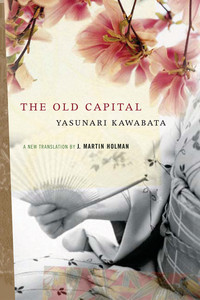
The Old Capital by Yasunari Kawabata describes the story of Chieko, an adopted daughter of a couple who own a kimono wholesale business.
The novel is very quiet. It paints a beautiful picture of Kyoto, and a large portion of the novel is used to describe Kyoto's scenery. The same kind of serenity is reflected in the characters's emotions. Even when the characters are extremely emotional, the prose is not lugubrious; it often just allow the readers to see the emotions through the conversations between the characters.
(spoiler ahead)
To me, the story is extremely sad. Naeko and Chieko are just like the violets on the maple tree: so close yet so far apart. It especially pains me that Naeko feels the need to shy away from Chieko so as to avoid damaging Chieko's reputation. I think this highlights the absurdity of social order and social constraints. Similarly, Naeko is spot on about Hideo seeing an illusion of Chieko in her. Clearly, Naeko is a substitute for Chieko; Hideo does not have a high-enough social status to marry Chieko.
One thing about the novel, though, is that at times it feels a bit awkward. I understand that Japanese and English are two entirely different languages, but sometimes the transition from one sentence to the next just feels a bit out of place. Also, I wasn't entirely focused when reading the novel, so the names of the places and festivals (which are strings of unfamiliar syllables) simply eluded me. For these reasons, I should try reading the novel in Chinese. Not only is Chinese more similar to Japanese, the Chinese version of the festivals/locations/temples are actually meaningful.
